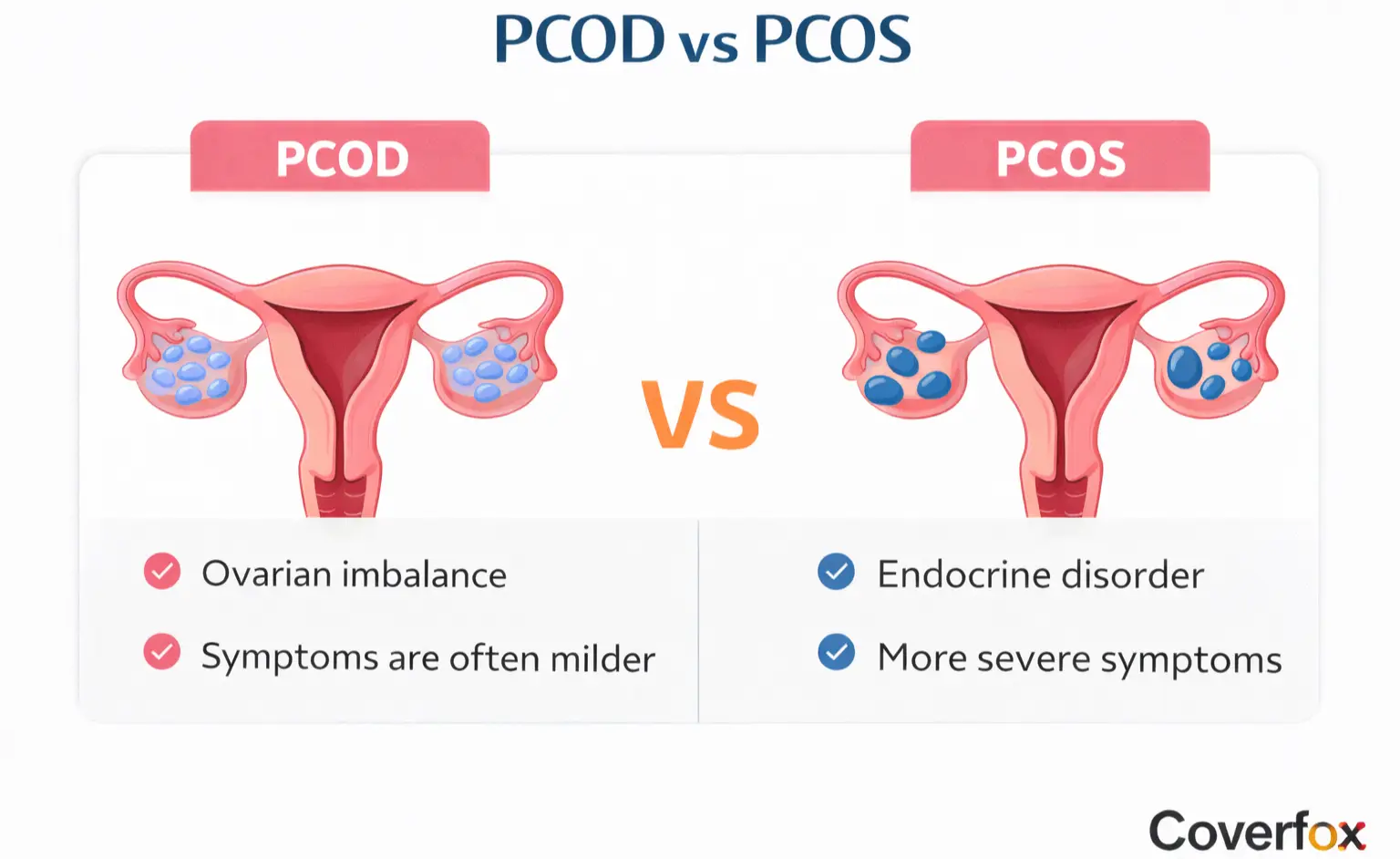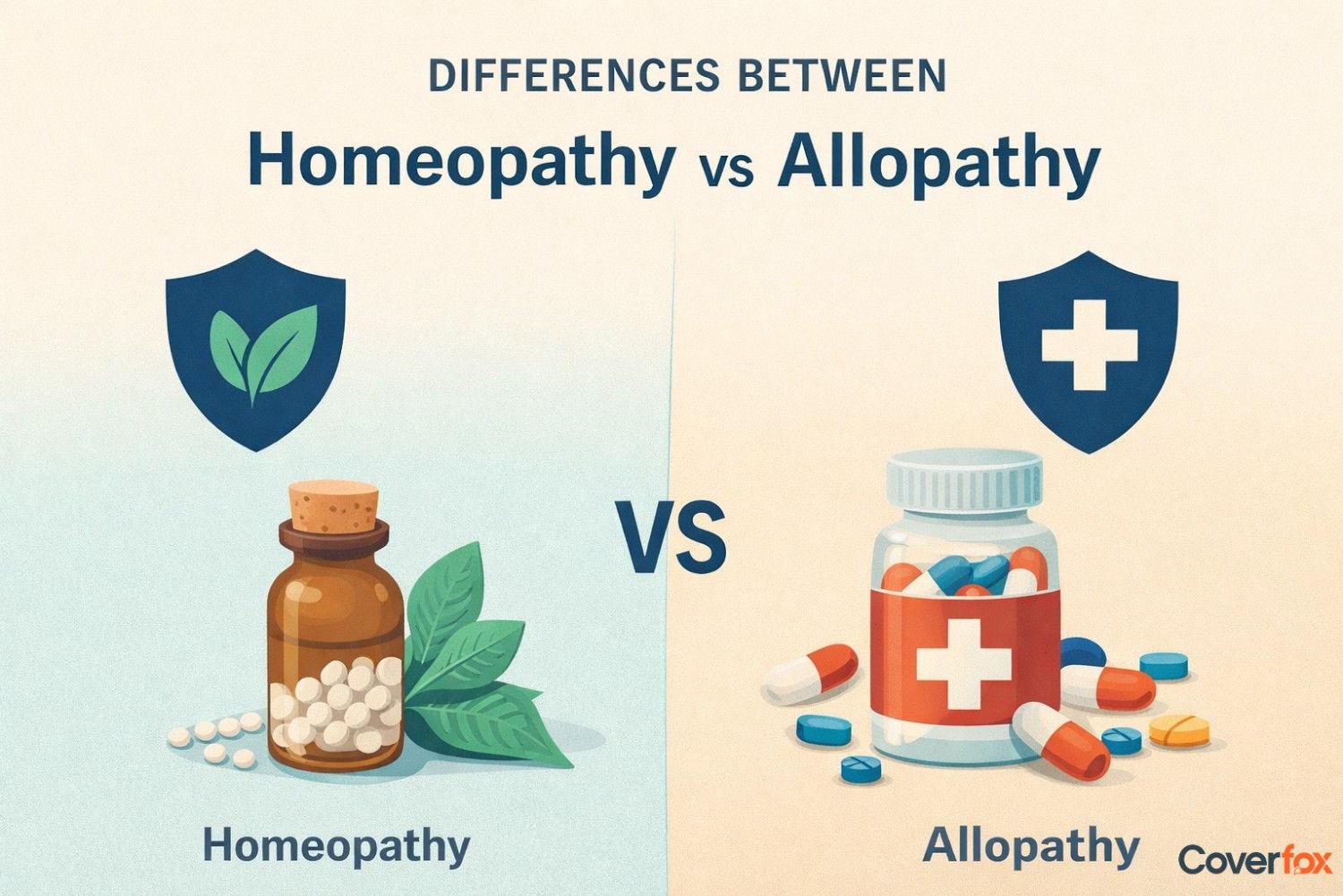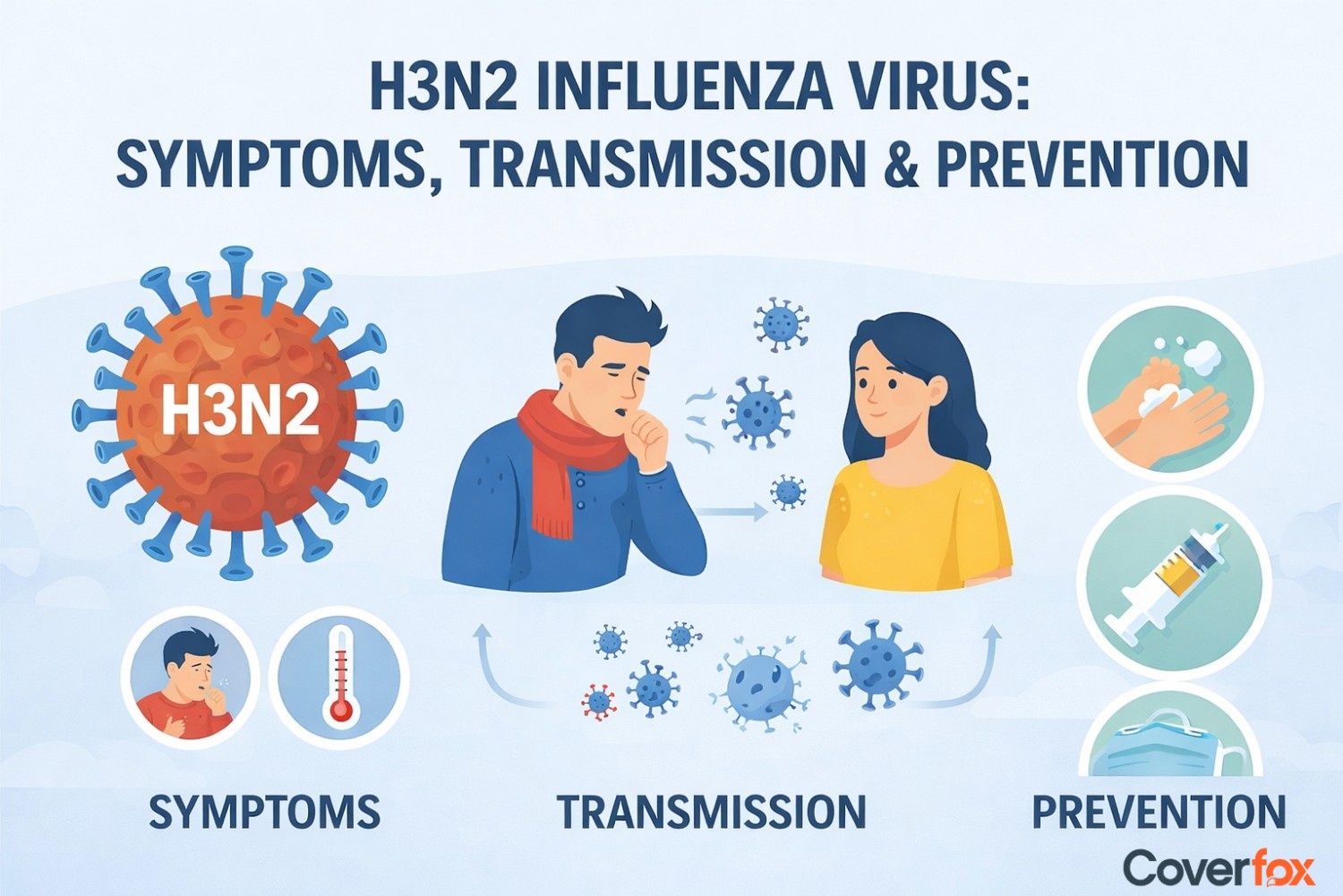Did you know? 1 out of 3 adults do not have adequate amounts of sleep. As per CDC, an average adult should get at least 7-9 hours of quality sleep everyday.

In today’s fast paced world, we are treating sleep as a luxury rather than a biological necessity. Having improper or insufficient sleep can lead to various health as well as mental issues. Poor sleep affects everything from immune strength and heart health to memory, mood, and even weight management. Continue reading to understand the health benefits of sleep and why proper sleep is essential.
Why Quality Sleep is Important for Your Health?
A good sleep is not just 7-9 hours of lying down on the bed. You should have 7-9 hours of “Quality” sleep. It’s during this time that your body cycles through various stages of sleep, including REM (Rapid Eye Movement) sleep (Generally at this stage, dreaming occurs), which supports memory, mood, and deep sleep, which helps repair tissues, build muscle, and boost immunity. At the core of your sleep is your circadian rhythm. It is basically the body’s alarm clock, the way the body keeps its sleep-wake schedule. Disruptions to this rhythm (like irregular bedtimes, night shifts, or late-night screen time) can throw your entire system off balance.
Little sleep or excess sleep is also not good. A bad quality of sleep and inadequate sleep can increase the risk of chronic conditions such as heart disease, diabetes, and depression. That’s why prioritising consistent, quality sleep is essential, as it is a key factor of maintaining a healthy life.
Top 10 Scientifically Backed Benefits of Sleep
As we have established, a good quality sleep is essential for physical and mental well being of a person. So the question arises, What exactly are the benefits of sleep? To answer that, here is a list of top 10 benefits of sleep that are backed by science.
1. Supports Heart Health
One of the biggest risk factors for heart disease is blood pressure. Sleep helps in regulating blood pressure as during deep sleep, your heart rate and blood pressure naturally lowers, giving your cardiovascular system time to recover. Hypertension, heart attacks, and stroke are the common heart health risks that are linked to poor sleep.
2. Helps Regulate Blood Sugar Levels
Sleeps help reset the blood sugar levels in the body (Generally in the later half of your sleep). Sleep influences insulin sensitivity. Poor sleep can increase the risk of getting Type 2 Diabetes as it disrupts the insulin levels in the blood.
3. Reduces Stress and Improves Mood
A good night’s rest lowers cortisol (the stress hormone) and improves serotonin production, helping you wake up calmer and more positive. Sleeping also helps the brain to maintain mood balance. People who have inadequate sleep are more irritable, have anxiety and have emotional outbursts more often. Insomnia has many mental disorders like signs of depression, anxiety and panic attacks.
4. Enhances Memory and Brain Function
The neural connections built during the day are strengthened at night when you go to sleep. Sleep has proven to improve abilities like learning, decision making and problem solving. REM sleep helps with better memory and brain functionality. Quality sleep results in better and innovative thoughts as well.
5. Boosts Immune System
When you go to sleep, your body releases cytokines that fight infections and reduce inflammation. On the other hand, inadequate sleep leads to a weaker immune system, making the body more vulnerable to diseases. The immune system has lymphocytes or otherwise known as immune cells. Insufficient sleep causes reduced functionality of these cells, weakening the immune system. On the contrary, a good night’s sleep can help you recover faster and strengthen your immune system.
6. Supports Healthy Weight Management
Sleep regulates the hormones ghrelin (hunger) and leptin (satiety). Poor sleep disrupts this balance, often leading to overeating and weight gain. It also affects your energy levels, impacting exercise consistency. Sleep deprivation also leads to laziness. Combine all these and you start gaining weight.
7. Improves Physical Recovery
Deep sleep is when your body produces growth hormone, which repairs muscles, tissues, and cells, thus making it essential for physical recovery. The body rests while you sleep, making recovery faster and easier. It is like a reset button, to reset your energy levels and improve physical performance.
8. Increases Daytime Energy and Productivity
Sleeping restores your energy, making you ready for the next day’s endeavours. A mindful rest will ensure maximum productivity and readiness for the next day. A well-rested brain is more efficient, helping you complete tasks faster and with fewer errors.
9. Enhances Balance and Coordination
Sleeping is associated with the Central Nervous System (CNS). A night’s rest can help increase concentration, reflex skills and motor skills, improving overall balance and coordination of the body.
10. Promotes Emotional Resilience
Sleeplessness causes irritable behaviour and restlessness. Adequate sleep ensures proper emotional balance. Sleep helps you respond to emotional challenges more calmly and rationally. It enhances your ability to cope with stress and makes you emotionally resilient.
What are the Consequences of Poor Sleep?
While adequate sleep has many benefits, poor sleep leads to many minor and major health problems that include mental and physical issues. The consequences of poor sleep are categorised into 2 parts – short term and long term effects:
Short Term Effects of Poor Sleep
Even if you miss a night’s sleep, it hinders your ability to function properly the next day. From tiredness to constant drowsiness, there are many short term effects of missing out on sleep that include:
- Daytime Fatigue
- Mood Swings
- Reduced Concentration
- Impaired Judgment
- Microsleeps
- Weakened Immunity
- Decreased Coordination
- Increased Cravings
Long Term Effects Poor Sleep
If a person is constantly sleeping poorly (Less than 6 hours a day), tiredness will be the least of the problems you will face. Long term effects of poor sleep can cause various diseases, discomforts, and chronic conditions that include:
- Heart Disease & Hypertension
- Diabetes
- Obesity
- Mental Health Disorders
- Cognitive Decline
- Weakened Immunity
- Hormonal Imbalance
- Reduced Life Expectancy
Insomnia and Sleep Disorders
Insomnia is a sleeping disorder where the body loses its ability to sleep properly. Insomnia affects the body's ability to fall asleep, stay asleep, or have a restful, uninterrupted sleep. It not only makes you tired, but also has adverse effects like poor concentration, fatigue, irritability, and a reduced quality of life. Insomnia does not mean just “not sleeping” it means the body loses its function to maintain a proper sleep cycle. Insomnia are of 2 types:
Acute Insomnia
Short-term, often triggered by stress or change in routine
Chronic Insomnia
Ongoing sleep trouble lasting for at least 3 nights a week over 3 months or more.
Common Triggers of Insomnia Include:
Stress and Anxiety
Work pressure, family issues, or emotional distress
Excessive Screen Time
Blue light from phones, tablets, or laptops disrupts melatonin production
Irregular Sleep Schedule
Frequent changes in sleep/wake time disturb your circadian rhythm
Caffeine or Alcohol Intake
Especially in the evening, which interferes with deep sleep
Poor Sleep Environment
Noise, light, uncomfortable bedding, or temperature extremes
Underlying Medical Conditions
Chronic pain, depression, GERD, or hormonal changes
Other Disorders Associated with Sleep
Hypersomnolence Disorders
For Example: Narcolepsy, Idiopathic Hypersomnia
Sleep-Related Breathing Disorders
For Example: Obstructive & Central Sleep Apnea
Circadian Rhythm Disorders
For Example: Delayed Sleep-Wake Phase, Shift-Work Sleep Disorder
Parasomnias
For Example: Sleepwalking, REM Behavior Disorder
Sleep-Related Movement Disorders
For Example: Restless Legs Syndrome, Periodic Limb Movements
Other/Medication-Induced Disorders
How to Improve Your Sleep Naturally?
As you have seen, improper sleep can lead to difficulties and diseases that you do not want to deal with. You can practice certain habits before and while going to sleep to ensure you improve your sleep naturally. In this way, you ensure proper sleep cycles, and avoid huge medical bills in the worst case scenario. Here are a few tips to improve your sleep naturally:
Practice breathing techniques
Breathing techniques like Pranayama ensure better respiratory health, along with a good night’s sleep. It also caters to issues of snoring. Practising activities like 4-7-8 breathing techniques help you relax yourselves and calm down before you go to sleep.
Limit the use of electronic devices
Try to limit the use of electronic devices, at least 30 minutes before you go to sleep. The light that emits from electronic devices decreases the melatonin levels in the body.
Be physically active throughout the day
If you are physically active throughout the day, as the night comes you will automatically feel tired and sleepy, making it ideal for you to just fall asleep on time. It makes your body start a perfect wake-sleep schedule.
Make a routine
Try to sleep and wake up at the same time everyday. If you keep following a routine everyday, the body will automatically adjust itself and will know when you are about to go to sleep and when you are about to wake up. It makes the whole process easier on the body.
Eat your meals at least 2-3 hours before you go to sleep
Eat your dinner at least a couple of hours before you go to sleep. This ensures proper digestion and no sleep interference. If you are hungry, you can take small snacks before you sleep, but do not take entire meals just before you sleep.
Understand your sleep schedule
Some people are night owls, some people are early birds. What is important is to have adequate regular sleep. Make sure you sleep when your body needs to, and have a proper sleeping schedule (go to sleep everyday at the same time and wake up at the same time).
Do not oversleep
Just as poor or less sleep has side effects, oversleeping too has its own downsides. Make sure you sleep only how much you are required to; no more, no less.
Treatment Options for Sleep Issues
Sleeping disorders can be solved with natural treatments, or through medical treatments. Resort to prescription meds only if you are unable to solve your sleeping issues naturally, or if the doctor advises you otherwise. Here is a potent natural therapy treatment for treating insomnia.
Cognitive Behavioral Therapy for Insomnia (CBT-I)
A first-line, non-drug treatment with lasting benefits. It works by identifying and restructuring the thoughts and behaviours that keep you awake. Key components include:
Sleep Restriction
Limiting time in bed to rebuild a strong sleep drive.
Stimulus Control
Strengthening the mental link “bed = sleep” by avoiding other activities (work, screen-time) in bed.
Cognitive Restructuring
Challenging unhelpful beliefs (e.g. “If I don’t sleep eight hours, tomorrow is ruined”) and replacing them with calmer, more realistic self-talk.
Sleep Hygiene Education
Fine-tuning habits—regular wake times, caffeine timing, bedroom environment—to support your natural rhythm.
Benefits of CBT-I
No side-effects, high long-term success rate, often covered by insurers.
Natural & Over-the-Counter Supplements
When lifestyle tweaks and CBT aren’t enough, some people find gentle boosts from:
Melatonin
A hormone that helps signal “night-time” to your brain. Short-term use (0.5–3 mg before bed) can be helpful for shift-workers or jet-lag recovery.
Magnesium
Supports muscle relaxation and may improve sleep quality (200–400 mg orally, 1–2 hours before bed).
Herbal Aids
Valerian root, chamomile, lavender and passionflower can have mild calming effects. Usually taken as teas or standardized extracts.
L-theanine
An amino acid from green tea that promotes relaxation without drowsiness, often used in 100–200 mg doses.
Note: Always check for interactions (e.g. with blood pressure or psychiatric meds) and look for reputable brands, consult with a doctor before taking any medications.
| Class | Examples | Pros | Cons |
|---|---|---|---|
| Benzodiazepines | Temazepam, Lorazepam | Rapid onset; effective for sleep initiation | Tolerance/dependence risk; daytime drowsiness |
| “Z-Drugs” (non-benzodiazepines) | Zolpidem, Zopiclone | Fewer next-day effects; lower dependence risk | Possible sleep-related behaviours (sleep-walking) |
| Melatonin Receptor Agonists | Ramelteon | Mimics natural melatonin; minimal rebound | May take several nights to see benefit |
| Orexin (Wake-Promoting) Antagonists | Suvorexant, Lemborexant | Helps you stay asleep; generally well-tolerated | Costly; potential for next-day drowsiness at higher doses |
| Antidepressants with Sedative Effects | Trazodone, Doxepin | Dual benefit of mood/anxiety are factors | Low-dose side-effects (dry mouth, constipation) |
NOTE: These are prescribed medications, take them with consultation from your doctor only.
When to Talk to a Doctor About Your Sleep?
Occasional sleepless nights are normal, but if you’re persistently struggling—taking over 30 minutes to fall asleep, waking repeatedly, or feeling unrefreshed after 7–9 hours—you should seek help. Warning signs include loud snoring or gasping (possible sleep apnoea), excessive daytime sleepiness or unplanned naps, mood swings, memory lapses, and unusual nighttime behaviours (sleepwalking, vivid nightmares). If poor sleep is affecting your work, relationships or safety, consult a GP or sleep specialist.
Most comprehensive health insurance plans cover specialist consultations, sleep studies (polysomnography) and related day-care procedures. Early intervention can prevent minor issues from becoming chronic.
Key Takeaways
Sleep is an absolute biological necessity. An average adult should have at least 7-9 hours of sleep daily to function properly. Poor sleep leads to sleeping disorders, and conditions that you do not want to deal with. Practice healthy sleeping habits to avoid any medical tension and a hefty medical bill. Although, you can apply for a health insurance policy to help you with the medical bills associated with sleeping disorders. Consult a doctor if you cannot address your sleeping issues with natural or home remedies. Sleep well.
You May Also Interested In
Frequently Asked Questions
Is 10 hours of sleep too much?
Occasionally getting 10 hours isn’t harmful, but regularly oversleeping may signal underlying issues (e.g. depression, thyroid imbalance) and can leave you groggy.
Is 5 hours of sleep enough?
No, most adults need 7–9 hours. Consistently sleeping only 5 hours leads to cognitive decline, mood disturbances and health risks over time.
How to sleep fast?
Establish a wind-down routine: dim lights, avoid screens an hour before bed, practise deep-breathing or progressive muscle relaxation, and stick to a regular sleep schedule.
Why can’t I sleep at night?
Common culprits include stress, late caffeine or alcohol, irregular routines, excessive screen time, noisy or bright environments, and undiagnosed sleep disorders.
What is the best time to sleep?
Aim to fall asleep between 9 pm and 11 pm, aligning with your natural circadian rhythm so you wake refreshed after 7–9 hours.
What is the “10-3-2-1-0” rule for sleep?
- 10 hrs: No caffeine
- 3 hrs: No big meals
- 2 hrs: Stop work
- 1 hr: No screens
- 0 hr:Alcohol or nicotine
Does warm milk help you sleep?
It contains tryptophan (a sleep-promoting amino acid) and may have a comforting placebo effect helpful for some, mild at best.


.webp)
 in Insurance.webp)

